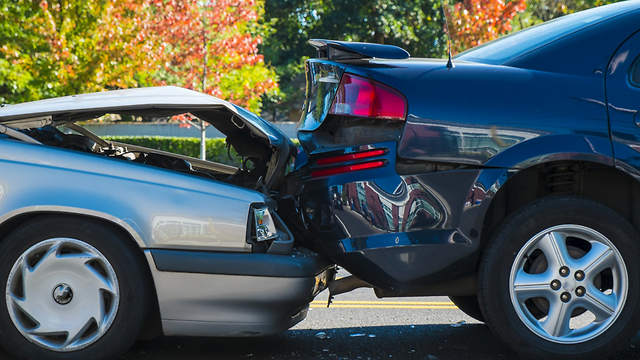
7 Post Car Accident Symptoms to Be Aware Of

In the shock and panic created immediately after an auto accident, the victim may not realize that he or she got injured. This happens primarily due to your body reaction to trauma because right after a mishap, the victim’s body starts producing adrenaline (aka epinephrine) to help cope with injuries that he or she might have sustained. Even if you feel no pain at the moment, some post car accident symptoms can take weeks to recognize. That’s why it is very important to be alert of even small illness that results after a mishap. In this article, we have listed seven delayed injured symptoms to pay attention to.
- Headache
Headache is the most common symptom of the post-car accident injury. You may not experience pain right away, but when you wake up the next morning, or a few days later, you may experience headaches because of blurred or double vision. In addition conditions like nausea, sensitivity to noise or light, and sleep, mood, or appetite changes may indicate serious concussion or severe traumatic brain injury. If you hit your head in an accident, the soft brain tissues may impact the skull of your head, and that could potentially cause bruising, bleeding, and swelling to the brain. This kind of traumatic head injury can be life-threatening, with no symptoms at first. Usually, the pain is completely harmless and can go away if you take a pain killer, but it’s not a good idea, and you should immediately visit a doctor.
2. Neck and Shoulder Pain
You can experience pain in the neck and shoulders right after the wreck. This pain is typically a sign of whiplash, the most common injuries sustained in an auto accident. If you begin to notice stiffness or pain around your head, shoulders, or neck, make a trip to consult the best car injury doctor nearby.
Your doctor will schedule a regular test (an x-ray or MRI) to diagnose the reason behind your pain, or if there is a need, he may go for a CT scan also. You can also opt for a private MRI scan without a doctor’s referral if it’s available in your area. If your pain isn’t related to whiplash, it could indicate spinal injury, which needs to be treated right away.
Some other whiplash symptoms to be aware of include:
- fatigue
- dizziness
- sore muscles
- restricted range of motion
- blurred or double vision
3. Back Pain
If days after your accident, you notice back pain, it may be a symptom of a soft tissue injury, spinal injury, herniated disc, a sprain, or whiplash. Moreover, if you feel numbness or tingling in your back, this could signal the pinched nerve. The person in this situation can face difficulty with mobility, so it is better to seek professional help as soon as you notice these symptoms.
4. Numbness
Whiplash doesn’t always cause neck or shoulder pain. Whiplash Associated Disorder (WAD) manifests in the form of lack of sensation, numbness, or tingling in your hands and arms because of damage sustained to the nerves of your spinal column.
A pinched nerve can make you sleepless and will require a car injury doctor intervention to treat the condition properly. TENS machines, nerve blocks, and physiotherapy are useful in this case.
As per the estimate, 20 percent of car accident victims experience symptoms of whiplash, either immediately or days later, following the accident.
5. Abdominal Pain
Abdominal pain after a crash can indicate internal bleeding. If you feel dizziness and fainting, or got large areas of deep purple bruising, immediately visit the doctor as it results from internal bleeding (might go undiscovered for hours or even weeks). Remember, abdominal pain is a life-threatening condition and requires immediate treatment by emergency personnel.
6. Lack of Concentration and Memory Loss
This could result from head injuries, stress, concussions, and more. After an accident, the victim may find it hard to communicate effectively in a conversational tone or may feel difficult to finish simple tasks. While it may be just that you are feeling lost about everything surrounded near you. If your symptoms are affecting your daily living activities, you should seek medical help as soon as possible.
*Post-concussion syndrome lasts typically for months or sometimes 2 to 3 years, leaving the individual with difficulty in critical thinking, speaking, or recalling information.
7. PTSD
Posttraumatic stress disorder (PTSD) is a mental disorder that can happen after a traumatic, life-threatening, or scary event. It is common among police officers and military personnel. However, you can also develop this mental disorder after a major car accident.
People with PTSD can have flashbacks, insomnia, low self-esteem, and a lot of unpleasant emotions. Also, stress can lead to difficulty expressing your forming thoughts. PTSD can be very subtly at initial stages but gradually get worse as time passes. In some cases, the person might lose memory altogether.
PTSD can affect the way you function and deteriorate your quality of life. And you may feel like everything is over, and will never get your life back. But with the short- and long-term medications along with regular cognitive behavioral therapy, the patient can recover soon. Never ignore any signs of PTSD, and seek professional help as soon as you can.
Final thought
When it’s about your health and fitness, you need to be extra careful. Just because you didn’t feel any pain immediately following a car accident, doesn’t mean you are fine. As discussed above, there are several injuries that remain undetected for hours or days after an accident. Therefore, one should be mindful of the above symptoms and visit the best car injury doctor nearby. The sooner you are diagnosed with the issue, the sooner you can start to recover.
The protection of our family and friends is of utmost importance. So why not to spread awareness by sharing this article with your loved ones?
